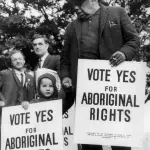
In Australia, some of the most commonly accepted human and civil rights include:
- The right to life and security.
- Liberty and freedom of movement and assembly.
- Equality before the law and due process if accused of a crime.
- The right to trial by a jury of one’s peers.
- Freedom of speech, of religious worship and political views.
- The right to participate in democratic elections.
In Australia, our rights are protected by a range of laws, institutions and legal jurisdictions:
Constitutional protections. The Commonwealth Constitution provides protection of our rights through both express and implied rights (see separate pages in this section). Individuals can challenge legislation from any Australian parliament in the High Court, on the basis that it breaches their rights as expressed or implied in the Constitution. The rulings of Federal and State courts can also be appealed to the High Court on the same basis. In both cases, the High Court must grant special leave to appeal before it will hear challenges or appeals.
Statutory protection. There are many pieces of Commonwealth, State and Territorial legislation that protects and guards against the infringement of our rights. Some examples include the Racial Discrimination Act (Commonwealth, 1975) the Sex Discrimination Act (Commonwealth, 1984) the Human Rights and Equal Opportunity Commission Act (Commonwealth, 1986) the Disability Discrimination Act (Commonwealth, 1992) the Age Discrimination Act (Commonwealth, 2004) the Racial Vilification Act (South Australia, 1996) the Racial and Religious Tolerance Act (Victoria, 2001) the Human Rights Act (ACT, 2004) and the Victorian Charter of Human Rights and Responsibilities Act (Victoria, 2006).
International law and treaties. Australia is a signatory to more than 1,000 different international treaties and agreements. Some of these treaties relate to human and civil rights. The Universal Declaration of Human Rights (UDHR) is the foremost global expression of rights. Other notable treaties include the International Covenant on Civil and Political Rights (ICCPR) the International Covenant on Economic, Social and Cultural Rights (ICESCR) the United Nationals Convention Against Torture, the Convention on the Rights of Persons with Disabilities, and the United Nations Convention on the Rights of the Child (UNCRC). Although Australia has signed these treaties, this does not mean the rights they prescribe automatically become incorporated into Australian law. The parliament may include these rights in legislation – and, in many cases, has.
Common law. The courts protect our rights through the operation of criminal law. Those who breach the rights of others by committing acts of violence, depriving liberty, engaging in threatening behaviour, stealing or damaging property and so on are tried and punished by the courts. In addition, court procedures also protect the rights of those accused of crimes. Individuals are entitled to the right not to be searched without an appropriate warrant; the right to silence if arrested or questioned; the right to a trial for an indictable offence; and the right to legal representation. Civil law allows individuals to seek a remedy if they have been harmed or disadvantaged by the actions of others. Above all, individuals are assumed to be treated fairly and equally before the law.
© lawgovpol.com 2014. Content on this page may not be republished or distributed without permission. For more information please refer to our Terms of Use.
